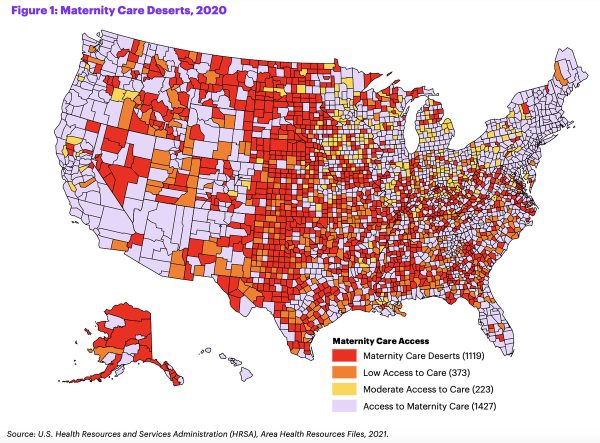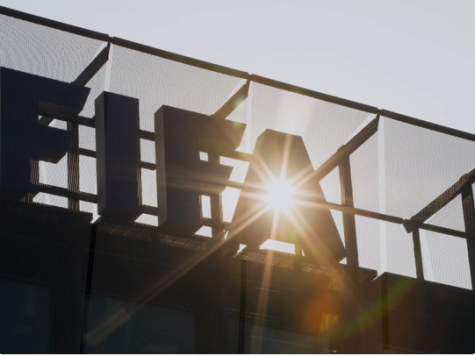Coginchaug Students are more than Deserving of a Break: Call Off Midterms
All students at Coginchaug Regional High School, regardless of their grade, have experienced an immense amount of difficulties in the previous two years. In 2020, we went several months without seeing the faces of our peers, and for much of 2021, we had to conjure up the motivation within ourselves to wake up early and log onto our classes. Our teachers were stressed, and we were too, but our stress never left us when the school year ended. Instead, we have only added to it. If masks don’t serve as enough of a reminder, we are still living through a global pandemic, even if we see one another more often now. Still, in the midst of Durham’s massive increase of COVID-19 cases, Coginchaug’s administration has decided to subject us to even more pressure and strain by scheduling midterms this January. Even if the exams account for five percent of our overall grade in each individual class rather than the original ten percent, midterms are the last thing us students currently need. How is it justifiable that after all we have been put through, and continue to go through, we are expected to complete and be ready for such a time consuming and daunting task that will only further burden us?
Recent studies prove that mental health has dramatically worsened in youth due to COVID-19 related struggles. Reports have shown that “more than 140,000 children in the United States have experienced the death of a parent or grandparent caregiver from COVID,” (American Academy of Pediatrics, healthychildren.org). This disheartening statistic fails to include those who have lost a sibling or other relatives to the virus, or death of family members due to other causes. Losing a family member or friend has caused grief for many students across the nation, furthering the number of teenagers affected by depression. However, even before the pandemic, a multitude of youth struggled with mental health issues that have only worsened over the past two years. “Up to one in five children ages three to seventeen in the U.S. [had] a mental, emotional, developmental, or behavioral disorder,” and “from 2009 to 2019, the share of high school students who reported persistent feelings of sadness or hopelessness increased by 40%, to more than one in three students,” (U.S. Department of Health and Human Services, hhs.gov). If the science isn’t alarming enough, consider how high the percentage has risen after over these strenuous and unprecedented years. If administrators wish to prioritize the mental and physical wellbeing of their students, they should be able to recognize the extreme anxiety midterms are causing all of us here at Coginchaug.
After asking a few of our peers around the school, it is evident that we are not the only students who hold this opinion. In fact, many students agree that midterms should have already been cancelled for a wide variety of reasons. We asked everyone we interviewed the exact same two questions: “How do you personally feel about midterms? What reasons do you have for holding that opinion?” We began by interviewing Kayla Kearns, a sophomore here at the high school. “Personally, as a student and athlete [on Coginchaug’s co-op swim team with Lyman Hall], I feel midterms put unnecessary stress and anxiety on the student body,” explained Kearns. “Many people have fallen into depression during [the pandemic] and are still struggling or recovering from it. I feel that by adding midterms into the mix of other tests and quizzes, this increases the rate of [mental health issues]. Additionally, athletes who are dedicated to their sport may not have time to prepare for midterms between practices and matches, or they may skip practices to study which, either way, results in poor performance in both. I don’t think midterms should be held this year and I think from now on, big assessments like this should be rethought considering certain factors.”
We followed up by asking Rachel Hayward, another Coginchaug sophomore, for her feelings about the exams. Hayward explained that, “Midterms are stressful overall, and it’s damaging to have them at a time when many students are not in a good headspace,” said Hayward. “There are alternative ways to examine how well students have remembered or learned material. I would support taking a test, but I don’t support grading it, considering it should show a teacher what students don’t fully understand. However, by grading [midterms] it becomes less of ‘how much do you remember?’ and more ‘how fast can you re-teach yourself the material?’, which simply isn’t an accurate representation as to how much a student understands what is taught in the class. Not to mention, it’s arguable that your grade is dependent on how much you can study, which disproportionately affects people who have other responsibilities and obligations. To study for, say, six out of eight classes after learning over a five (nearly six) month period, it takes a considerable amount of time and effort; time that many may not have.”
Even with numerous mental health impacts and being on a time crunch, midterms would be considered impractical by many. Where are the day-to-day skills that we will need in order to achieve lifelong success? Where are the core ethical values that played such a critical role in our youth and why don’t they play a larger role as a measure of success in our classes? Why do we, as students, need to take two hour long exams only to forget about them the next day and rarely, if not never, use the knowledge we “gained” in our future careers ten, even twenty years from now? The fundamentals of education are to be able to use this knowledge in our future careers, but how is this being applied? We are taking exams on subjects whose knowledge we may never use. With that being said, some may say that by taking these midterms we are learning and honing professional skills, such as the ability to manage time and perform research. While this may be completely true, midterms are not the only way of teaching these essential skills to students. These skills, the basis of Regional School District 13, shouldn’t be brought up whenever convenient. It is imperative that these lifelong learning skills be placed at a higher standard than arbitrary letters and numbers that hold no real and practical value. As a district, we should be focusing on honing skills such as the core ethical values and time management instead of focusing solely on retaining information learned throughout six month increments. Our district has always been about these core values: We are nothing without them, and we need to remind ourselves that these skills are the ones that will take us forward in our journeys, not memorizing everything that has been taught within a semester’s timeframe.
A few students, like junior Malone O’Sullivan, believe that the school should go ahead with holding midterms, but ultimately agrees in terms of the stress they undoubtedly result in. O’Sullivan exclaimed that, “Even though midterms are stressful and a lot of people have trouble completing them, I feel that they benefit us for those who are planning on attending college. Personally, I hate midterms, but I know that they’re going to help me in the long run.” While a few students share a similar opinion, it is clear that a vast majority of Coginchaug students wish the exams were called off entirely. If this is too radical, what if the administration compromised with these students who wish to prepare themselves for what lies ahead after graduating high school? Instead, what if the tests were given to students in order to allow us to see what to expect for future exams, but were taken exclusively as a learning opportunity and review of past units rather than for a final grade? Grading midterms during a global pandemic and expecting to see high results seems unrealistic and impractical during a time when so many students across the nation are already struggling.
After an already extremely tough and demanding half of a school year, it is obvious that enforcing students to take midterms will only result in more harm than good. With numerous factors such as mental health struggles and limited time to prepare, we ask that on behalf of a majority of Coginchaug Regional High School students, the school administration cancels these exams or meets us in between by proposing a greater compromise. Completing these anxiety-inducing exams in the middle of a global pandemic, one that has taken the lives of some 842,000 people in the United States alone, is not going to restore any sense of normalcy, no matter how much we wish for it to do so. We go to school each day and see our classmates and teachers missing, quarantining due to COVID-19 exposure. This school year is anything but normal: There’s no true reason to treat it as such.
With that being said, cancel midterms and watch as the morale of the student body instantly rises. Watch firsthand how taking this exorbitant pressure off our shoulders will, without a doubt, make the rest of our 2021-2022 school year more bearable.






paige konopka • Jan 15, 2022 at 6:26 pm
i totally agreeeeeeee with this